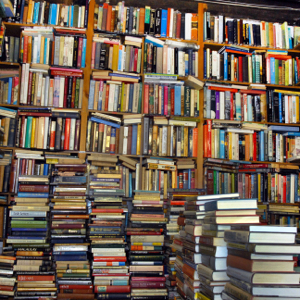Friends regularly ask me the following question: What book are you reading right now? It’s often asked with an air of distanced curiosity, as if books were housed in a magical and rarified world that somehow I’ve obtained access to via the arcane mediums of general literacy and a library card.
Beyond the obvious fact that I’ve created a life with plenty of free time, much of which I pass reading, I’m unsure why I’m asked this. Most people I know are not only literate but intelligent folks, and it seems that this playing field should be pretty level.
Sometimes I think that people still view reading books the way our parents or grandparents did: as a means of demonstrating socio-educational status. Only a couple generations ago literacy, to say nothing about exposure to or ownership of books, revealed something about your place in society. But that’s simply no longer the case, for with the exception of Detroit we’ve pretty much eradicated illiteracy in America and books are affordable and obtainable to the masses.
I frequently hear friends complain, I wish I had more time to read or I should really read more books or the dreaded This year I’m finally going to read Crime & Punishment. (Sure you are.) Often such statements carry a prevailing tone of dampened insincerity, as if in acknowledging the aspiration to read they’re simultaneously admitting it’s something that will never be achieved. (In a timely parallel think of the spirit of many New Year’s resolutions—it’s nice to think you’ll do it, but we’ve all grown a little too jaded to believe you actually will.)
I’m suggesting that far too many people feel like they should read, that reading is something that we think indicates good civic standing, like picking up after your dog or participating in PTA meetings. And I’m angling against that should, because most people I know are far too old to engage any form of entertainment for reasons other than pleasure.
Yes, fiction can be more than entertainment: it can teach life lessons or impel reflection or pass along knowledge or possibly other things. But one thing we all know is that it won’t be anything if it’s not entertaining.
This isn’t high-school or even college, which are times when the right thing to do is read things, regardless your level of enjoyment, because part of becoming a well-rounded adult requires you to broaden your base of knowledge and experience so you’ll better be able to engage the world.
You should read Homer when you’re 17 so you’ll be familiar with his stories and their impact across history and cultures. But if you’re in your 30’s, 40’s or older, and Shakespeare or Dostoyevsky or Proust doesn’t make you happy, you’re well beyond the point of sticking with it for form’s sake.
Most peoples’ non-working time is sorely limited, and as such should be filled with joy rather than obligation. If you don’t like Shakespeare the best thing is not to read him and don’t apologize for it. You may miss the occasional reference but hey—there’s the rub of your choice.
How you spend your time reveals how you’ve organized your priorities, and if you find yourself watching Jersey Shores or nosing into Dan Brown novels, then damnit love you some Snookie or whatever-character-Tom-Hanks plays. Enjoy the hell out of them and by god don’t apologize for it.
I’m not advocating an effort-less joy. Sometimes pleasure requires a lot of work: just think about any loving relationship, which, be it friendship, family or romance, brings about as much happiness as most of us will know while also being the most challenging thing most of us will ever do.
Putting effort into something that’s not immediately accessible might actually surprise you with joys you’d otherwise not have experienced, and you’ll never know that if you don’t give it a try. But again: if you hate slugging through 16th-Century English or watching movies with subtitles or listening to music that’s longer than 4-minutes and doesn’t have a clearly repeated chorus, then don’t do it. Just stop.
Value your free time enough to fill it with pleasure. Yes, you’ll occasionally run into some snob at a coffee shop who will look up from his Stendahl and down upon your US Weekly, but don’t apologize for liking what you like. And maybe, just maybe, every once in a while try something you find challenging: read MacCarthy or Barthelme or Marias even if it’s difficult. After all, you might just find that you’re enjoying yourself.

I like knowing what book you’re reading – it’s an insight as to your interest of the moment and you open me to books/authors I wouldn’t read otherwise. Plus, the conversation evolves interesting ways bc we discuss plots, characters and why you/we like/dislike/are challenged by them.